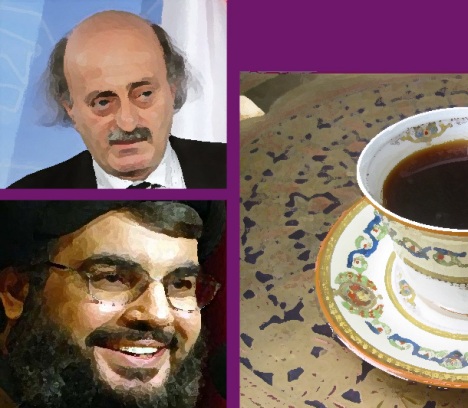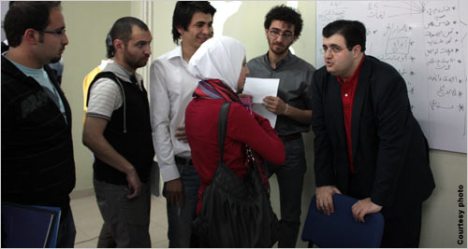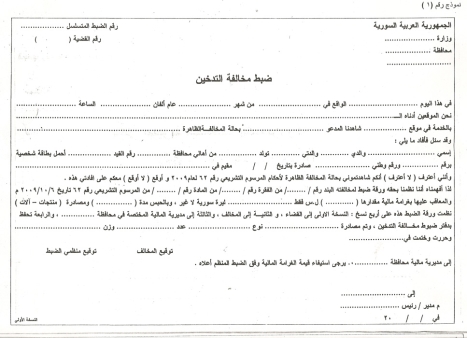 Sami Moubayed
Sami Moubayed
I was always amazed at Western journalists enchanted by Walid Jumblatt in 2005-2008, describing him as a ‘hero of Lebanese independence’ who had been ‘anti-Syrian for years.’ Anybody who said or believed that clearly knew very little about Syrian-Lebanese relations, and nothing about Walid Jumblatt. During the civil war and the 1990s, Jumblatt was one of the pillars of the pro-Syrian camp in Lebanon, which included then-Finance Minister Fouad al-Siniora and Prime Minister Rafiq al-Harriri. He served as cabinet minister and MP during the heyday of Syria’s presence in Lebanon and was a very frequent visitor to Damascus. He owned a house and office in the Syrian capital and was married to Nora, a Damascene lady who is the daughter of Syria’s former Defense Minister Ahmad al-Sharabati.
By apologizing to Syria, government and people alike, and landing in Damascus yesterday, Walid Jumblatt stirred up media attention once again, about where the man—a skilled political chameleon brilliant at political acrobats—really stands on Syrian-Lebanese relations. I personally don’t have an answer, and nobody really does except for Walid Jumblatt.
I met Jumblatt twice in 2002 for an interview for the pro-Palestinian American magazine, The Washington Report. Back then he was still loudly pro-Syrian. I drove up to his castle in al-Mukhtara on one cold Sunday morning, where “Walid Bey” was scheduled to meet me, at 9 am. What I recall best is the very lax security surrounding his residence as I walked through the stone corridors of the mansion, adorned with photos of his father and the Syrian resistance leader Sultan Pasha al-Atrash. Walid Jumblatt was in a large hall surrounded by hundreds of citizens coming to seek his favor, casually laid back in jeans and white shirt. I presented him with copies of the magazine and a copy of my book which mentioned his father-in-law during the Palestine War of 1948.
We had strong Arabic coffee and chatted about the interview for 15 minutes, and then I headed back to Beirut. He preferred to conduct the interview at his residence in the Lebanese capital, next to the American University of Beirut.
The next day, I walked over to Jumblatt’s house, which was minutes from where I lived in Beirut, and found him all alone at his living room, reading the mass circulation daily An-Nahhar, with a copy of my book by his side. He had clearly gone through it earlier that morning and we talked about his father-in-law Ahmad Sharabati, whose reputation was tarnished for leading the Syrian Army into defeat in 1948. We then switched to contemporary affairs, and the record of what Walid Jumblatt said to me speaks volumes about how the Druze leader really thought prior to the ‘cold war’ between Damascus and the Bush White House, which in turn led to a cold war between Syria and Jumblatt.
First, he seemed completely convinced that George W. Bush had one-way or another, staged 9-11 to justify a crusade against the Arabs and Muslims, similar to how Adolph Hitler had presumably torched the Reichstag in 1933 to justify a war against Jews—and everybody else who was opposed to the Nazis.
He then said, “They (the Americans) want us to stand against Syria and we tell them: Never in a million years! By asking us to work against Syria they are telling us to work against ourselves, against our history and our nation! We tell them: We are with Syria until the last drop of blood!” He then added, “I personally am with Syria regardless of who is ruling it; whether it is Adib al-Shishakli (who waged a war against the Druze in 1953), Shukri al-Quwatli, or Bashar al-Assad. I will never work against Syria no matter what happens, nor will I turn my back on the Palestinians!” He then spoke about his relationship with Yasser Arafat, who was besieged at his compound in Ramallah by Ariel Sharon, reminding how he had escorted Abu Ammar out of Beirut in the summer of 1982, weeping at the exodus of the Palestinians from Lebanon, 20-years ago.
All of these images kept coming to mind as I heard Walid Jumblatt fire very derogatory remarks against Syria in 2005, accusing it of assassinating Rafiq al-Harriri. It was unbelievable that only three years later, this very man had uttered such strong words in favor of Syria. Jumblatt had been used and abused by the Bush White House and his allies in March 14—very willingly—and single handedly took blame for the slump in Syrian-Lebanese relations during the difficult 5-years that have passed.
The isolation Bush tried to impose on Syria is now history. Bush has sunk into obscurity; Jumblatt has admitted his mistakes, while Syria’s relationship with its allies, Hizbullah, Hamas, and Iran, remains as strong as ever. Jumblatt’s visit to Syria, three months after Prime Minister Saad Harriri came to Damascus, is testimony that Syria was right all along! Jumblatt will have to work hard from here on to sustain his relationship with Hizbullah, since that is the channel through which his road to Damascus will run. What is assuring today is that these difficult days are seemingly gone, never to return—never that is—in a million years
Filed under: Media in Syria | Leave a comment »










